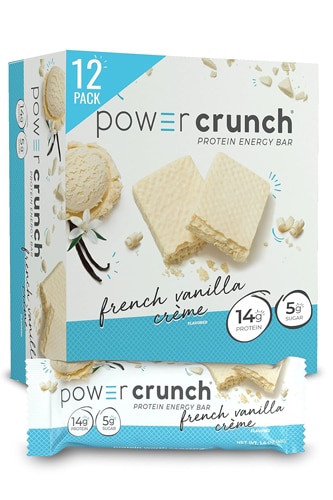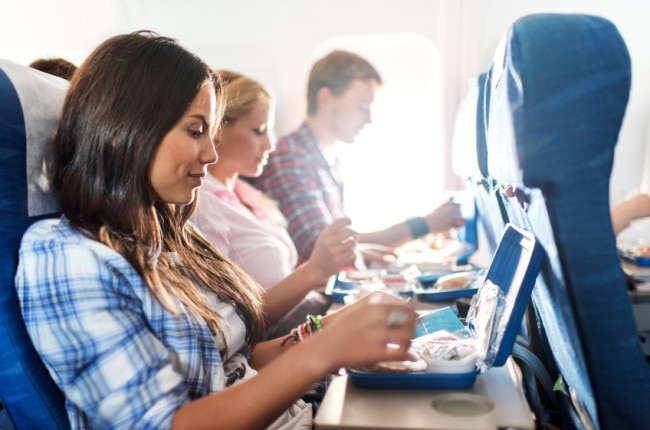We hate to be a Debbie Downer, but there’s a sad reality about that trip you’re planning to Hawaii.
During a one-week vacation, many adults can pack on extra pounds that can linger for six weeks after the getaway, according to a new study. Study author Jamie Cooper, associate professor of foods and nutrition at the University of Georgia, and others call this phenomenon “creeping obesity.”
In her study of 122 vacationing adults, Cooper found that the getaway weight gain happened despite a trend toward slightly more physical activity during vacation. She also discovered a decline in physical activity in the weeks following a vacation.
In the study, six of every 10 participants gained an average of 0.9 pounds during the entire vacation and post-vacation period. Some participants actually lost weight, however, while others plumped up by as much as 7 pounds.
“One of the challenges people face is unless you’re diligent about weighing yourself before and after vacation, usually you’re not going to notice a pound of weight gain,” Cooper says in a news release. “People don’t realize it’s happening, and that’s why they don’t lose weight following a vacation.”
To help you prevent returning from vacation weighed down by extra “baggage,” experts serve up these 12 tips.
1. Stay hydrated.
Experts emphasize downing plenty of water when you’re on vacation. Being on the go and being out in the sun can dehydrate you, so you should constantly be sipping water, says health and wellness expert Avni Mahiji, a board-certified pharmacist.
“Don’t fill up on empty liquid calories,” cautions Cheryl Russo, a certified personal fitness instructor and health coach.
Among the benefits of swigging water are that it cranks up digestion and fights fatigue, says Lilia Arnest, a certified holistic nutrition consultant.
2. Beware of the booze.
Registered dietitian Rene Ficek, the lead nutrition expert at meal delivery company Seattle Sutton’s Healthy Eating, reminds us that a couple of alcoholic beverages can pretty much blow your daily calorie count. For instance, two jumbo margaritas could be overflowing with a total of 1,400 calories, she says.
Don’t despair, though. If you’re in the mood for merriment, pick lower-calorie alternatives like white wine spritzers, light beer, red or white wine, or flavored vodka with club soda, Ficek recommends.
Of course, be sure to drink in moderation. If you get too tipsy, you might end up guzzling as many calories as those two jumbo margaritas, and you very likely could be nursing a hangover.
3. Watch what you eat.
Russo suggests sticking to the old 80/20 rule for your vacation diet — 80 percent healthy choices and 20 percent indulgent choices. If you feel like “cheating,” however, Russo says you can get by with a 75/25 or 70/30 combo.
Arnest says your daily vacation meals should include whole foods such as salads, fresh vegetables, healthy proteins and healthy fats. This will keep your tummy happy and keep you away from junk food, she says.
4. Maintain balance.
Arnest says each vacation meal and snack should provide a balance of carbohydrates, protein and fats. For instance, if you’re craving a muffin, pair it with some yogurt to help you feel fuller and level out your blood sugar.
“If you just eat a bunch of carbohydrates without having any protein or fats, you will get hungry sooner and your blood sugar will go up. All carbohydrates raise blood sugar, which causes weight gain,” she says.
5. Ease up on the hard-core dieting.
Christina Major, a holistic nutritionist and naturopathic doctor, says that while on vacation, you should limit by-the-book dieting.
“The more complicated the diet, the less likely people will follow it,” Major says.
To remove the complication, Major suggests focusing on eating five fruits and vegetables each day while you’re on vacation, she says. This will cut down on gobbling unhealthy foods, Major says.
“It takes the pressure off ‘dieting’ and lets people have fun,” she says.
6. “Boost” your diet.
Arnest recommends concocting one healthy smoothie each day that contains “booster” foods like greens, chia seeds, flaxseed, and whey or vegan protein.
“This will give you more energy for fun activities and will keep you regular,” she says. “A lot of people get digestive issues when they are on vacation. Booster foods will prevent that.”
7. Pack some snacks.
When you’re venturing out for the day to explore your vacation locale, slip some healthy snacks into your backpack or bag, such as fruits, unsalted nuts or low-sugar protein bars.
“If you don’t let yourself get too hungry, you will be less likely to indulge in unhealthy fare,” Ficek says.
8. Skip the buffet.
All-you-can-eat buffets try to seduce you with calorie-loaded dishes and goodies, everything from fatty prime rib to gooey mac-and-cheese casserole to sugar-laden chocolate cake. Resist the temptation to go the buffet route. If you wind up there against your will, zero in on the salad bar — high-quality protein, fruits and vegetable — but avoid those bad-for-you dressings.
These stuff-yourself buffets “are energy drainers, and your body honestly doesn’t need that much food at one time. It’s better to eat more often and in smaller portions,” certified personal trainer and spin instructor Rebecca Bennett says.
Another tip: Grab a smaller plate at the buffet rather than a larger one.
“You’ll be less likely to over pile food on a smaller plate, and if you’re still hungry for more, you can always get up for more,” says Rafael Landeiro, marketing manager at occupational health company Mobile Health.
Landeiro recently followed the small-plate rule and other smart-eating guidelines during a trip with his wife to Jamaica.
9. Put on the chef’s hat.
If you’re staying in a hotel room or condo equipped with a kitchen, use it. Chowing down on do-it-yourself meals can save money — and your waistline.
Certified holistic health coach and self-proclaimed “road warrior” Melanie Young, author of “Fearless Fabulous You: Lessons on Living Life on Your Terms,” recommends hunting for local farmers markets where you can pick up fresh fruits and vegetables, along with local specialty foods.
10. Add physical activity to the itinerary.
To rev up your heart rate, blend sightseeing with exercise. Ficek, the registered dietitian, suggests incorporating a walking, cycling or running tour into your vacation schedule. Your heart will be pumping due to the physical exertion — as well as the new sights you’ll come across.
Bennett offers these other ideas for enjoyable yet beneficial activities: kayaking in a local river, hiking in a park or in the mountains, walking on the beach or swimming in the hotel’s pool.
11. Climb the stairs.
Instead of zipping to your fourth-floor hotel room in an elevator, walk to and from your temporary home, Ficek recommends. Don’t take the stairs, though, if your room is on the 31st floor and you’re not in marathon-worthy shape.
12. Hit the gym.
If your hotel or resort has a gym, carve out some time to work up a sweat there.
“I watch the morning news shows on a stationary bike,” Young says. “If you are not a hotel-gym person, many hotels offer in-room workout programs on their televisions. I use the big, overpriced water bottles in my room as hand weights rather than spending $5 a bottle for the water.”




